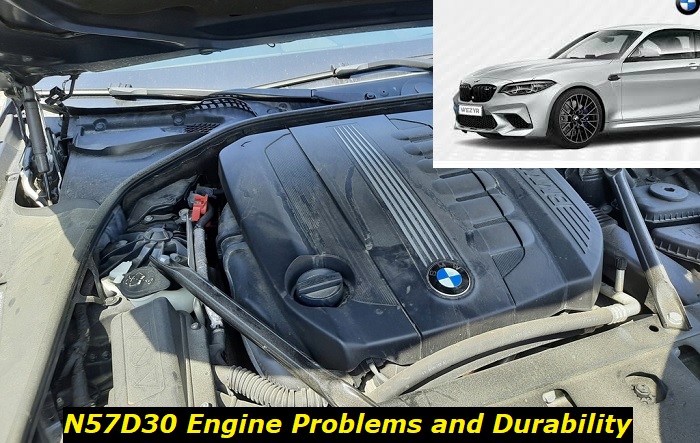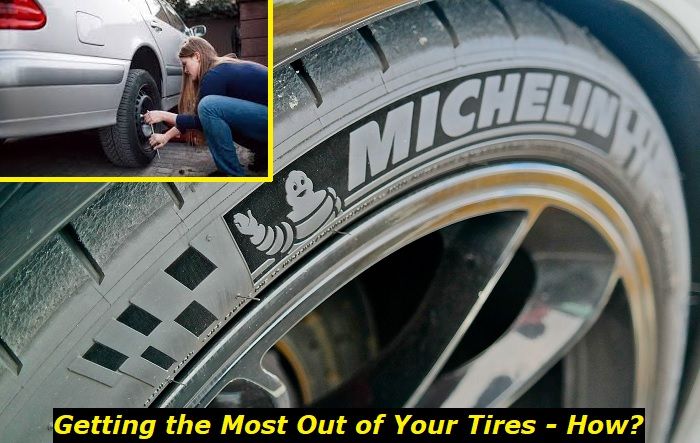We've discussed many BMW engines, including the most modern ones. But today, I want to make sure that you know the basics. The N57D30 engine is one of the most commonly used diesel engines in BMW vehicles. It was installed in almost all models of the German brand and got several generations being one of the most renowned and beloved diesel engines BMW ever made.
In this article, I want to outline the key features of this engine as well as tell you a little about the history of the machine. I will also touch the topic of the common problems of the N57D30 engine and will outline its reliability. I will make a conclusion about the mileage it should go without any problems.

Key facts and my opinion about the engine
- Production years: 2008-2020
- Average lifespan of N57: 220,000-230,000 miles
- Fuel supply type: Common Rail
- Power range: 204-381 hp
- Fuel efficiency: excellent
- Engine block material: aluminum
- Engine reliability score: high
- The most common problems: intake contamination, expensive chain replacement, EGR valve problems.
What should you know about the N57D30 engine?
First of all, this is the continuation of the M57 with almost everything the same. But BMW engineers changed several important things to get rid of common problems that the M57 showed. Unfortunately, some of the upgrades led to new common issues. But overall, the N57D30 engine can be estimated as the more reliable machine.
It was produced from 2008 to 2020. The engine was installed on all major models of the company, so literally millions of them were made. Thanks to this, now you won't have any problems finding parts for the engine - both new and used are available all over the world.
Here are some important facts about the engine:
- this is the 6-cylinder inline engine with 24-valve head offering 3.0 liters of displacement and 204 to 381 horsepower of power depending on the version;
- there were versions with one, two, or even three turbochargers, with different fuel injectors, the major update was in 2011 (new crankshaft, new connecting rods, etc.);
- the injection is based on the Common Rail system, in older engines the injectors were pretty demanding for fuel quality, after 2011 BMW used more practical injector types;
- the engine wasn't really economical but in comparison with gas-powered competitors, this is as cheap as bicycle to drive;
- the timing system is powered by the chain, it's pretty strong and durable but if you press the gas pedal hard, you will need to replace it at 120,000 miles or so;
- the engine also had the so-called N57TU version but basically it's absolutely the same N57D30 machine.
This is the great 6-cylinder diesel engine that is still hunted for on the market of used cars. Yes, it's not the most durable engine in the world and you are going to have some problems with it. But this is a BMW machine that allows you to feel all the power and torque when you are driving your car.
This is probably not the engine you would love to own if you don't love spending money and time in repair shops and dealerships. But still, comparing to almost any other BMW engine, I can say that the N57 model is one of the best ones in terms of driving emotions, durability, and common issues.
How long will the N57D30 engine last?
Talking about its durability, we should start with history of reports. Surprisingly, there aren't many of them. If you look at any other BMW engine, you will find hundreds of forum pages with thousands of messages proving that even locating the problem is sometimes extremely difficult and expensive.
The N57D30 engine should last approximately 220,000 miles without serious issues. After that, you can overhaul the engine and it will most likely live another 100,000 miles with no serious problems. This is a durable and reliable machine that just needs proper care.
But the durability depends on many things including the version. The model with three turbochargers and super-efficient fuel injectors will likely last less than that. If you take it to 100,000 miles without serious turbocharger issues, you are lucky. But this is the case with performance-oriented engines.
Although the machine still has several common issues, it's extremely reliable as for the luxury car segment. And I'm pretty sure you will be happy even if you buy it used with low mileage on it.
What about common problems?
However hard BMW tried to fix all the common issues with the M57 engine engineering their N57 model, they just made some more common problems. Yes, they managed to cope with faulty intake manifold flaps. You will still need to clean them once every 3 years, but now they don't fall apart and don't get directly into the engine as in the previous version.
But still, some problems are there to remember:
1. Intake manifold requires regular cleaning
The intake manifold still needs some cleaning. Its complicated construction may get some dirt and buildup on it and will get stuck. It means you will lose the efficiency of air supply and will need to put up with low power and glitchy engine.
The good solution is to clean the intake manifold once every 3 years. This will allow you to prevent this problem rather than to cope with it when it already affects the life of your engine.
2. Timing chains problems
There are several chains in these engines and BMW made one bad thing - they moved the chains to the flywheel side. It means that to replace the chain, you will need to take the transmission off. Basically, many mechanics will just take the engine off the car when they need to change the chain and make some other serious repairs.
It doesn't mean you can't drive it forever without changing the chain. But still, the tensioner is not that reliable and can break. Also, the chains may stretch too much and even jump if you don't pay attention to the rattling sounds and other issues.
3. Crankshaft problems
This engine uses the damper pulley in the crankshaft system. It's OK, many diesel engines do this to balance the vibrations. But the problem is that the damper pulley is not eternal. It can stop working at about 100,000 miles. It doesn't mean you will need to repair the engine immediately. But the crankshaft will be quite loaded and will just give up soon.
Unfortunately, there are no clear signs of the broken damper pulley, so you may not even know about this. If your engine is take apart for chain replacement or something, have a look at the damper pulley, too.
4. Emission control systems are faulty
As in all modern engines, the EGR valve and the DPF will only like it when you buy the most expensive diesel fuel. It should be clean. Otherwise, your DPF and EGR systems are going to get hard time and will most likely fail very soon.
Also, bad fuel is slowly killing the injection system, especially in the pre-2011 version of the N57D30 engine. Anyway, this diesel engine requires high-quality fuel and it will make your life hard and painful if you fail to find this type of diesel fuel.
5. Overall high prices for repairs
Repair and maintenance can be surprisingly expensive. Even if you owned a luxury car before and know what it takes to service it, you will be surprised about the prices for BMW N57 engine repair. It's not only about the parts but also about the labor. Almost any work with this engine is extremely labor-intensive and will require a thick wallet from you. And you will notice how fast it becomes thinner.
Can you prolong the life of the N57D30 engine?
Given everything that I've already said above, you can easily deduct several things that will prolong the life of this engine.
Here are some things you may need to implement:
- Good fuel is your main concern - the engines are very fuel-sensitive and require only high-grade diesel fuel.
- Don't ignore even minor problems. The issues with this vehicle may quickly get worse, so you will require more money to fix them if you keep ignoring minor symptoms.
- Repair it sooner than it fails. Don't wait for the chain to stretch, replace it at 150,000 miles. Clean the intake manifold regularly.
- Don't forget about regular maintenance. Proper lubrication is a life-saving feature for the engine and it's only possible with fresh and clean oil.
- Use only good repair shops. Find mechanics who really work with BMW cars regularly. Otherwise, you may get into troubles.
Pay attention to the overall condition of the engine. If it vibrates, loses power, makes you suffer when you accelerate, or emits some strange sounds, you may want to show it to a specialist. Driving and torturing the engine further will probably lead to one of the fatal failures.
About the authors
The CarAraC research team is composed of seasoned auto mechanics and automotive industry professionals, including individuals with advanced degrees and certifications in their field. Our team members boast prestigious credentials, reflecting their extensive knowledge and skills. These qualifications include: IMI: Institute of the Motor Industry, ASE-Certified Master Automobile Technicians; Coventry University, Graduate of MA in Automotive Journalism; Politecnico di Torino, Italy, MS Automotive Engineering; Ss. Cyril and Methodius University in Skopje, Mechanical University in Skopje; TOC Automotive College; DHA Suffa University, Department of Mechanical Engineering






Add comment